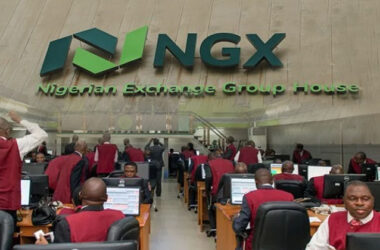As Nigeria strides into 2024, the economic horizon is painted with a mix of promise and challenge. Amidst a projected GDP growth of 3.3%, the shadows of inflationary pressures, rising unemployment, and currency depreciation loom large. In an exclusive interview with Olaotan Fawehinmi, Associate Director at Mediacraft Associates, he delves into the profound insights and strategic policy reforms necessary to confront these multifaceted dynamics head-on.
Youth unemployment is a significant challenge, with data revealing a staggering 53.40% unemployment rate among the youth demographic. Fawehinmi underscores that the root causes intertwine with Nigeria’s heavy reliance on oil revenue, hindering job creation in diverse sectors. He stressed that addressing this demands multifaceted interventions, including a comprehensive overhaul of the education system., infrastructure development, and a shift towards practical skill development aligned with market needs.
Nigeria’s demographic dividend, with 70% of the population being youth, presents immense potential for job creation. Fawehinmi, however, noted that harnessing Nigeria’s cultural heritage for economic growth and bridging the gap between skills acquired and those demanded by the job market remains imperative. “Sectors like technology, agriculture, sustainable energy, and tourism hold promise for absorbing new entrants into the labour market, provided there’s alignment between education and industry needs,” he added.
Diversifying the economy away from oil dependency is paramount. Fawehinmi calls for streamlining regulatory processes, enhancing access to finance for SMEs, and fostering private enterprise and manufacturing are vital reforms. According to him, simplifying and updating regulatory frameworks can create a more conducive environment for business growth and job creation.
Fawehinmi also highlighted access to financing as a bottleneck for small businesses and startups, necessitating a comprehensive strategy integrating advisory and lending services. He described policy improvements, innovative financial instruments, and collaborative efforts as crucial for overcoming these constraints and fostering SME growth.
With Nigeria’s high debt levels, prudent fiscal management becomes imperative. Fawehinmi underscores the importance of structural reforms focusing on defence, job creation, macroeconomic stability, and investment optimisation that are prioritised over short-term fiscal measures. Strengthening institutions, transparency, and good governance are pivotal for economic resilience.
Empowering Nigeria’s youth is crucial. Fawehinmi advocates for a fundamental shift in perspective towards Nigeria’s youth, highlighting the importance of nurturing creativity, entrepreneurship, and personal fulfilment. He underscores the potential of Nigeria’s young population to drive meaningful change and economic empowerment through self-discovery and harnessing individual talents.
In the face of oil price fluctuations and high inflation, Fawehinmi emphasises the importance of economic diversification and solid institutional frameworks to insulate Nigeria’s economy from external shocks. He calls for transparent fiscal management, regulatory reforms, and efforts to stabilise the exchange rate to mitigate the impact of oil price volatility.
Inflationary pressures, deepened by global and domestic factors, pose challenges for the Central Bank of Nigeria (CBN). Fawehinmi believes that tightening monetary policies, attracting foreign investments, and stabilising the exchange rate are vital strategies to contain rising prices while maintaining economic stability. However, he acknowledges that balancing inflation control with economic growth remains a delicate task.
Looking ahead, 2024’s economic outlook remains uncertain, according to Fawehinmi. While projections suggest potential growth, challenges such as inflation, unemployment, and external shocks persist. Though optimistic about Nigeria’s economic prospects, Fawehinmi advocates for a conservative approach to budgeting in 2024. He underscores the importance of setting realistic revenue targets, controlling expenditures, and prioritising key economic sectors for sustainable growth.
Fawehinmi urged policymakers and stakeholders to address Nigeria’s economic challenges and foster sustainable growth. “Addressing youth unemployment, diversifying the economy, and fostering entrepreneurship are pivotal for sustainable growth. With strategic policy reforms, collaborative efforts, and prudent fiscal management, Nigeria can navigate the challenges of 2024 and chart a path towards a more prosperous future,” he said.
Fawehinmi’s recommendations serve as a call to action for concerted efforts from government, private sector, and civil society to build a more resilient and inclusive economy for all Nigerians.









